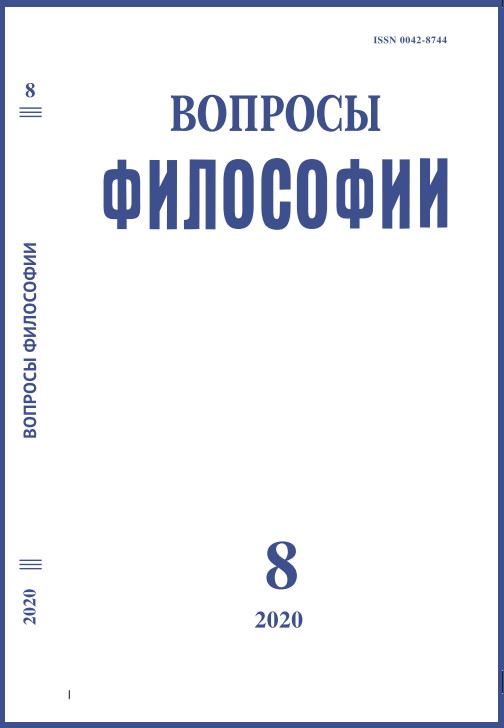S.N. Mareev on Hegel and Paradoxes of Soviet Philosophy
DOI:
https://doi.org/10.21146/0042-8744-2020-8-150-156Keywords:
Mareev, Ilyenkov, Hegel, Lenin, Soviet philosophy, dialectical materialism, ontology, the metaphysical form of dialectics, formal and real socialization.Abstract
The article discusses the features of historical and philosophical analysis, as understood by Marxist Sergei Nikolaevich Mareev (1941‒2019). He proceeded from E.V. Ilyenkov’s conception of dialectic of the historical and the logical in scientific research. The author emphasizes, that in this tradition, after Hegel, each serious philosophical theory is considered as a moment of truth, which is immanent in a movement from the abstract to the concrete universal. But in any historical research, including the history of philosophy, one should avoid abstract dictate of the laws of history over historical facts, as well as uncritical following the chronology. From this perspective, the author reviews Mareev’s research of the genesis of dialectical and historical materialism in his monograph From the history of Soviet Philosophy: Lukács – Vygotsky – Ilyenkov: the very problem of the identity of forms of thought and being disappears in diamat, which did not happen in Hegel. Mareev agreed with Ilyenkov that the official version of Soviet philosophy was metaphysical, and not by accident. That was one of the consequences of the fact that Soviet society could realize only formal socialization, and not the real one. But the failure of Soviet society was a part of the global crisis of modern society, where technological progress is combined with the aggravation of alienation in its various forms.

